In the realm of comedy, where wit and satire reign supreme, the line between clever humor and hurtful mockery can sometimes blur. This delicate balance was thrust into the spotlight recently when a "Saturday Night Live" (SNL) sketch featuring an impersonation of "White Lotus" star Aimee Lou Wood failed to elicit laughter from its subject. Instead, it sparked a wave of criticism and introspection about the nature of comedic parody and its impact on the individuals it targets.
The sketch in question, titled "White POTUS," aired during a weekend episode of SNL, a show renowned for its biting satire and bold impersonations. The premise of the sketch was a comedic riff on the popular HBO series "The White Lotus," which had recently concluded its third season. Set in Thailand, the sketch featured a star-studded cast of SNL performers impersonating high-profile political figures, including President Donald Trump and his family, vacationing in a luxurious resort. The satirical backdrop was a clever play on the opulent and often absurd world depicted in "The White Lotus."
However, the sketch took a turn that many found problematic. Among the cast of political impersonations was Sarah Sherman, who portrayed a character with a prominent overbite, a physical trait that bore a striking resemblance to Aimee Lou Wood's natural smile. This portrayal struck a nerve with Wood, who took to her Instagram Story on Sunday to express her disappointment. She described the sketch as "mean and unfunny," lamenting that there must be "a cleverer, more nuanced, less cheap way" to lampoon the show.
Wood's reaction is understandable, especially given the context of her recent experiences. Since the latest season of "The White Lotus" began airing, Wood's natural smile had become a focal point of attention, often overshadowing her talent and the substance of her work. She had previously spoken about the sadness she felt when the focus shifted from her acting to her appearance, a sentiment that resonates with many performers who strive to be recognized for their craft rather than their physical attributes.
The sketch's portrayal of Wood's character, Chelsea, a free-spirited young woman navigating a complex relationship in Thailand, seemed to miss the mark. While the main characters in the sketch were largely political figures, Sherman's character stood out as an unnecessary and unkind caricature. This aspect of the sketch was criticized by viewers who agreed with Wood, highlighting the importance of sensitivity and respect in comedic parody.
In the aftermath of the sketch, Wood received an outpouring of support from fans and fellow performers. She shared on Instagram that she had received "thousands" of messages from people who appreciated her candor and agreed with her critique. She also mentioned receiving "apologies" from SNL, though she did not specify who from the show had reached out to her. This response underscores the power of social media as a platform for public accountability and the importance of listening to the voices of those affected by comedic portrayals.
Wood's response to the sketch was measured and thoughtful. She emphasized that she is "not thin-skinned" and appreciates humor when it is "clever and in good spirits." However, she pointed out a critical flaw in the sketch: while the rest of the skit "was punching up" by targeting powerful political figures, she and her character Chelsea were "the only one punched down on." This distinction is crucial in understanding the impact of comedic parody. When humor targets those in positions of power, it can be a powerful tool for social commentary and critique. However, when it targets individuals who are already marginalized or misrepresented, it can perpetuate harmful stereotypes and contribute to a culture of bullying.
Wood also clarified that she did not place any blame on Sarah Sherman, the actress who portrayed the character with the overbite. Instead, she directed her criticism towards the concept of the sketch itself. This distinction is important, as it acknowledges the complexity of the creative process and the responsibility that lies with the writers and producers of the show. It also highlights the need for greater sensitivity and awareness in the development of comedic content.
The "White POTUS" sketch featured other notable impersonations, including James Austin Johnson as President Trump, inspired by the storyline involving Jason Isaacs in "The White Lotus" Season 3. Jon Hamm, the week's host, played Robert F. Kennedy, adding a layer of absurdity to the sketch with his character's musings on fluoride and its impact on dental health. Other SNL cast members, such as Marcello Hernandez as Secretary of State Marco Rubio and Chloe Fineman as First Lady Melania Trump, contributed to the satirical portrayal of political figures. The inclusion of these characters, while intended to add depth and relevance to the sketch, ultimately overshadowed the problematic portrayal of Wood's character.
The episode's musical guest, Lizzo, also made an appearance in the sketch, portraying Natasha Rothwell's character Belinda from "The White Lotus." Her inclusion added a touch of authenticity to the parody, as Rothwell's character is a beloved and integral part of the series. However, even with these notable performances, the sketch's handling of Wood's character remained a point of contention.
The controversy surrounding the "White POTUS" sketch serves as a valuable lesson for the world of comedy. While satire and parody are essential tools for social commentary and critique, they must be wielded with care and sensitivity. The power dynamics at play in comedic portrayals cannot be ignored, and the impact on individuals must be considered. Aimee Lou Wood's response to the sketch is a testament to the importance of empathy and respect in the creative process.
As the dust settles on this particular controversy, it is essential for the entertainment industry to reflect on the lessons learned. Comedic writers and producers must strive to create content that is both clever and compassionate, avoiding the pitfalls of cheap shots and harmful caricatures. The voices of those affected by such portrayals must be heard and respected, as they offer valuable insights into the impact of humor on real people.
In the end, the "White POTUS" sketch serves as a reminder that comedy has the power to both uplift and wound. It is a call to action for the industry to strive for greater nuance and empathy in its creative endeavors. Aimee Lou Wood's experience is a poignant reminder that behind every character is a real person, deserving of respect and consideration. As we move forward, let us hope that the world of comedy can find a way to balance wit with compassion, ensuring that laughter does not come at the expense of others.

By Benjamin Evans/Apr 16, 2025
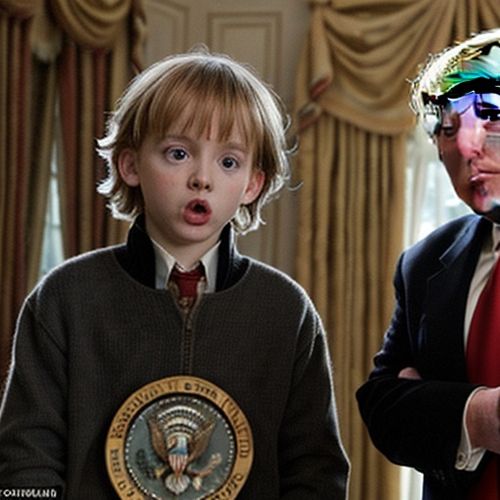
By Megan Clark/Apr 16, 2025

By Grace Cox/Apr 16, 2025

By David Anderson/Apr 16, 2025

By Amanda Phillips/Apr 16, 2025

By Christopher Harris/Apr 16, 2025

By Emily Johnson/Apr 16, 2025

By Natalie Campbell/Apr 16, 2025
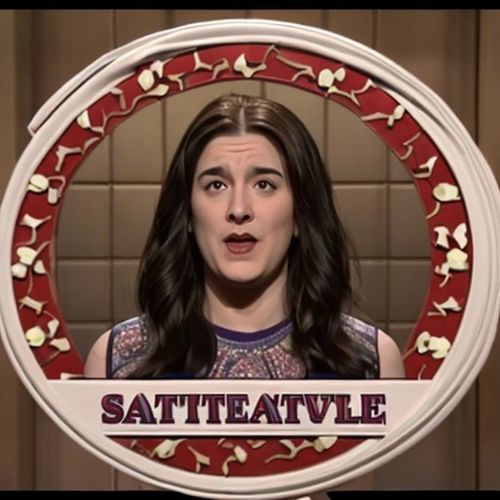
By Christopher Harris/Apr 16, 2025

By Grace Cox/Apr 16, 2025

By Natalie Campbell/Apr 9, 2025
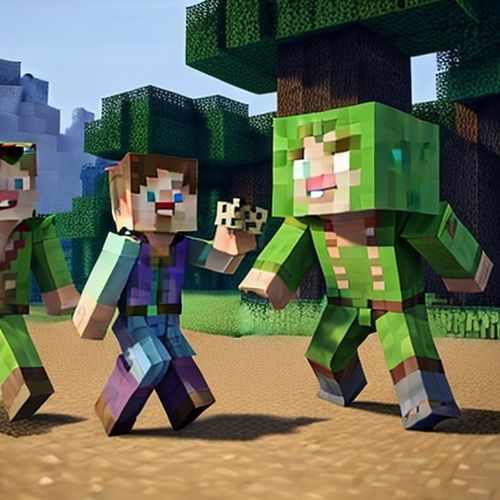
By Megan Clark/Apr 9, 2025
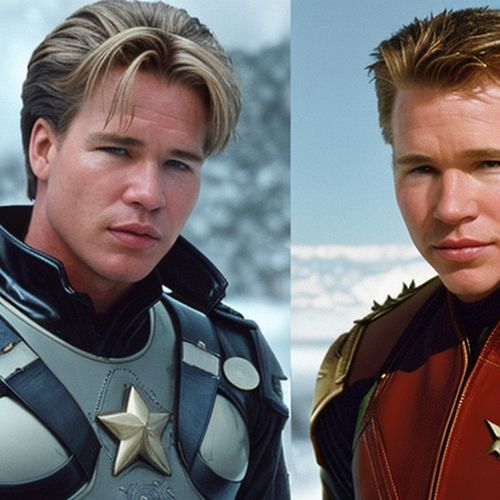
By Sophia Lewis/Apr 9, 2025

By Elizabeth Taylor/Apr 9, 2025

By Amanda Phillips/Apr 9, 2025

By Megan Clark/Apr 9, 2025

By Olivia Reed/Apr 9, 2025

By Jessica Lee/Apr 9, 2025

By Amanda Phillips/Apr 9, 2025
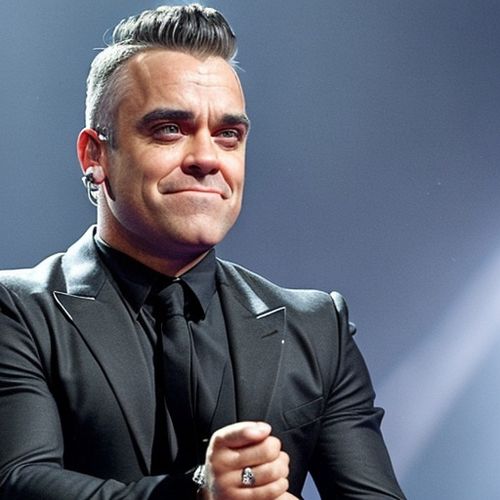
By Thomas Roberts/Apr 9, 2025